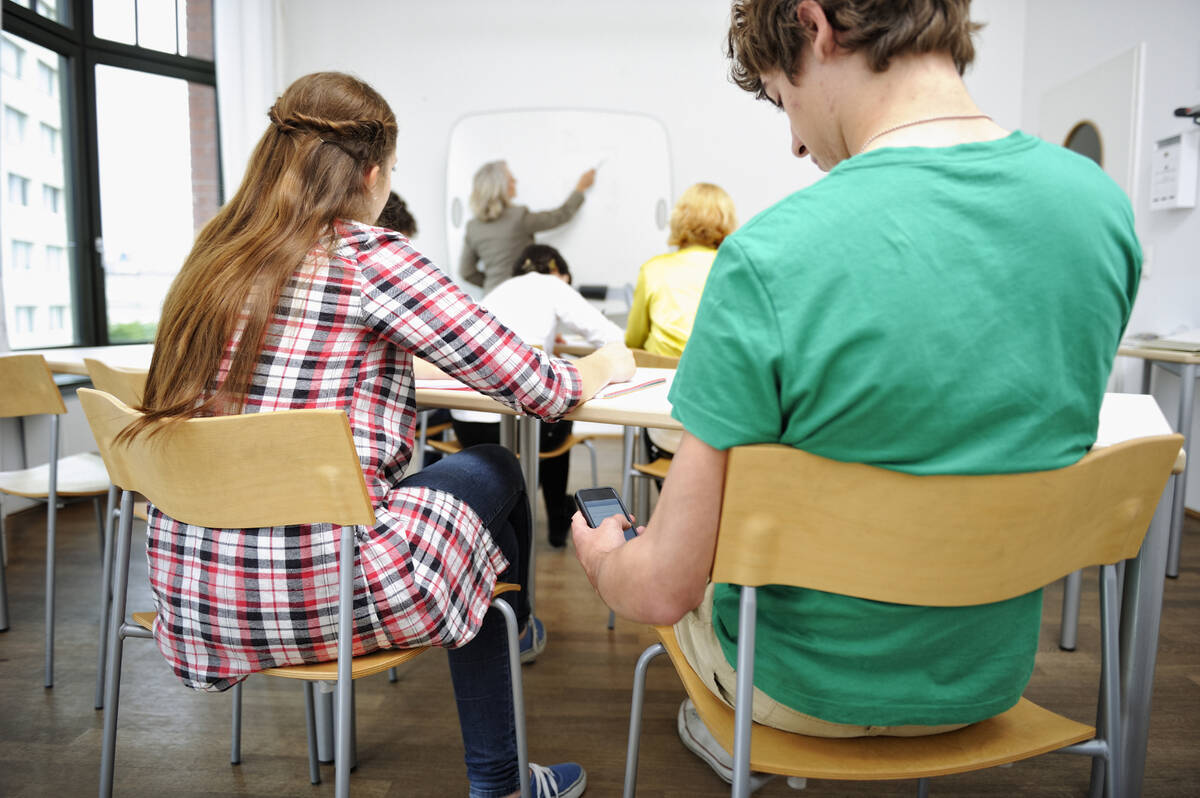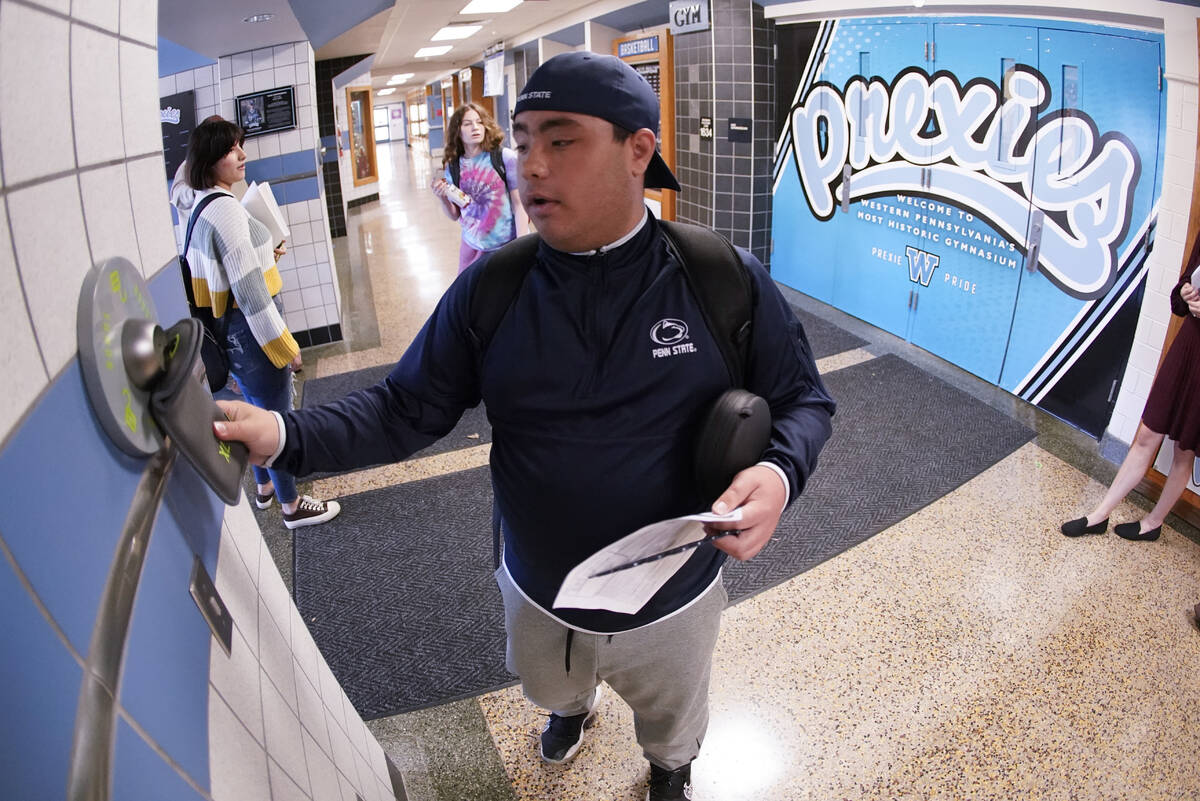VICTOR JOECKS: CCSD must enforce new cell phone restrictions
Clark County School District officials have imposed a great policy. Now, they need the courage to fully enforce it.
When middle and high school students return next month, there will be new restrictions on cellphones. Students are supposed to place their phones into signal-blocking pouches when they are in class. The cases don’t lock, which means students can access them during an emergency. Students can also use their phones between classes.
Credit to Interim Superintendent Brenda Larsen-Mitchell for rolling out this policy. Before he left, former Superintendent Jesus Jara also said this was in the works.
The need for this should be obvious. Companies worth trillions of dollars spend billions trying to make their apps draw as many eyeballs as possible for as long as possible. They make money by capturing children’s attention, and they’ve wildly succeeded.
Many teens are addicted to social media. David Greenfield, the founder of the Center for Internet and Technology Addiction, said social media companies use tactics, such as “intermittent reinforcement,” to hook users. That’s “just like a slot machine.”
There are good reasons the legal gambling age is 21. The adolescent brain is still developing, especially the ability to control impulses. Society puts guardrails in place for children and young adults to protect them from engaging in destructive behavior. Laws like this encourage better parenting, too. They make it easier for parents to enforce standards and signal to parents what’s best. That power should be used sparingly, but there are occasions when it’s appropriate.
But there are few restrictions on teenagers’ social media usage. It shows. In April, the American Psychological Association reported teens spend nearly five hours a day on social media. More than 40 percent of teens with the highest social media usage “rate their overall mental health as poor or very poor, compared with 23 percent of those with the lowest use,” the APA said. The highest users are twice as likely to have “expressed suicidal intent or self-harm” in the past year compared to the lowest users, the APA found.
Now imagine bringing this into the classroom. Even the best teachers don’t stand a chance of competing with phones, which are basically handheld, ever-accessible slot machines. Students don’t learn when they’re constantly checking their devices. Even a student who doesn’t carry a phone or turns it off will be distracted by streams of notifications from classmates.
Restricting cellphones in the classroom is a much-needed move.
But that’s only half the battle. Opposition has formed against the policy. An online petition that opposes the move isn’t the real concern. Spare me the “students concerned about communicating with their parents” routine. Kids: Ask your parents and grandparents how they survived attending school without a cellphone.
The bigger concern is enforcement. District officials must back up teachers and principals who punish students for breaking the policy. They must do so even if racially neutral enforcement leads to a racial disparity in discipline. That’s been a weak spot in the district for years.
Silencing cellphones won’t fix everything, but it will help students learn more in the classroom. Larsen-Mitchell needs to stand strong.
Contact Victor Joecks at vjoecks@reviewjournal.com or 702-383-4698. Follow @victorjoecks on X.



















